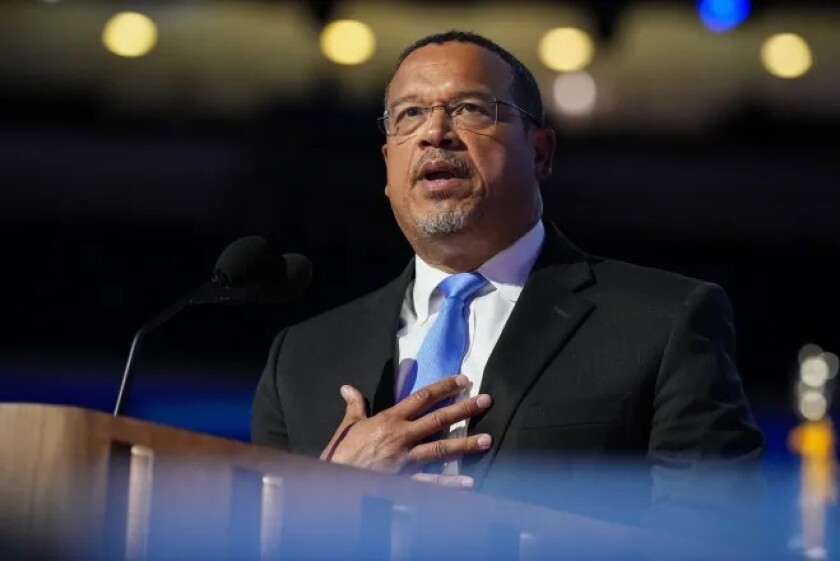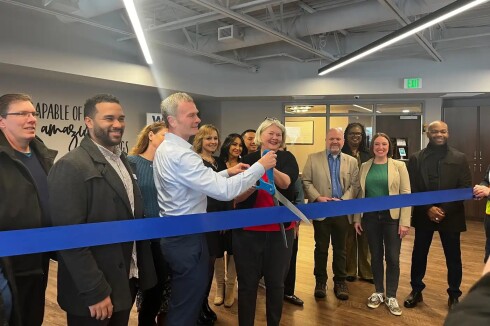Editor’s note: This is Part 2 of 5 in a series examining how the upcoming presidency of Donald Trump may impact Greater Minnesota.
ST. PAUL — Abortion rights advocates and opponents in Minnesota are closely watching for actions that could affect the state’s status as a “safe haven” for abortion access as President-elect Donald Trump prepares for his second term.
ADVERTISEMENT
In January 2023, after the Dobbs v. Jackson decision triggered the overturning of Roe v. Wade, Minnesota was the first state to pass statewide abortion protection. The bill swiftly made it to Gov. Tim Walz’s desk during the beginning of the DFL trifecta of a Democratic governor, Senate majority and House majority.
“President-elect Trump has been very clear that he is leaving abortion policy, abortion laws to the states, and Gov. Walz has already proven that he, for our state, for Minnesota, wants the most extreme pro-abortion policies and laws available, or even imaginable,” said Cathy Blaeser, co-executive director of Minnesota Citizens Concerned for Life, an anti-abortion nonprofit organization that aims to influence abortion-related legislation.
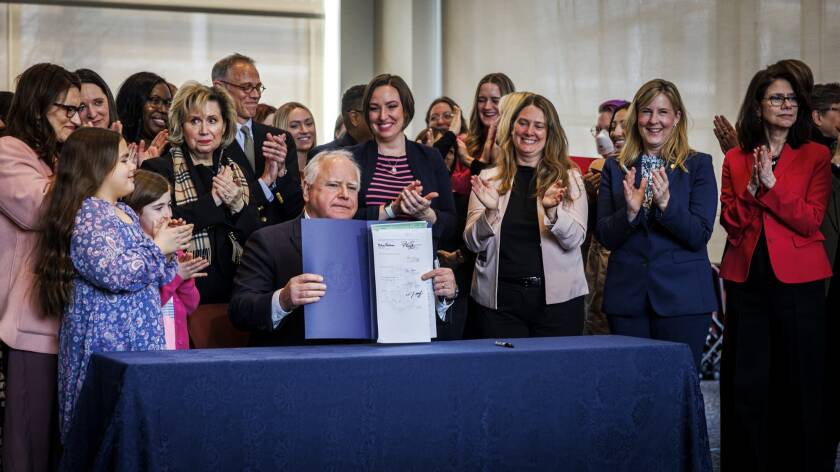
Activists like Blaeser see state-level abortion laws remaining mostly untouched, but others are concerned about the potential for broader federal action.
Ruth Richardson, CEO of Planned Parenthood North Central States, said that while Trump said he would leave abortion laws up to the states, Planned Parenthood is preparing for any possibility.
“States’ rights only go so far,” Richardson said. “National attacks passed by Congress and signed into law by Trump would impact all states, even Minnesota, despite state-level protections.”
Minnesota’s newest voice in Congress, Rep.-elect Kelly Morrison, said she sees a clear appetite for abortion rights in states with varied political leanings on the national level and is keeping a close eye on abortion protection in the U.S.
”One message that was clear in this election is that Americans in red, blue and purple states support reproductive freedom,” Morrison said, referencing the seven states that approved ballot measures in November protecting abortion access. “Even states that voted for Donald Trump, like Missouri and Arizona, also voted for measures to protect abortion rights.”
ADVERTISEMENT
Morrison heads to Washington this year as the lone OB-GYN advocating for abortion rights in U.S. Congress.
Taking on out-of-state patients
Tammi Kromenaker, director of the Red River Woman’s Clinic which was formerly based in Fargo, said the clinic moved to Moorhead in 2022 in anticipation of both North Dakota’s abortion ban and the overturning of Roe v. Wade after the Supreme Court opinion was leaked in 2022.
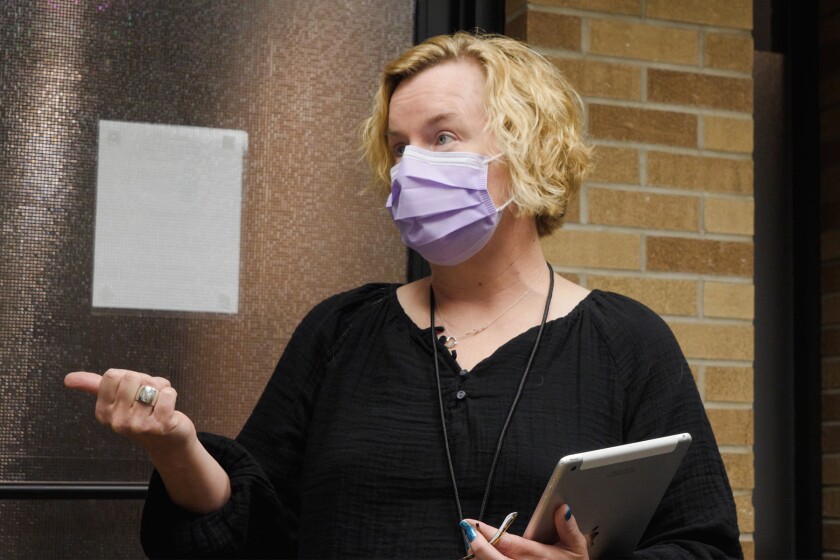
Even after the move, about 70% of Kromenaker’s patients at her northwest Minnesota clinic are from North Dakota, but she said she sees patients from all over the country.
Richardson echoed this trend and said out-of-state patients have increased 111% at Planned Parenthood since the Dobbs decision.
Blaeser, who serves as co-executive director for Minnesota Citizens Concerned for Life, said she doesn’t like that Minnesota is known as a state that provides abortions. She said she thinks Trump’s election and Minnesota’s election results reflect a desire for more “reasonable” abortion laws in the state.
“I don’t think most Minnesotans want to be known as an abortion mecca,” Blaeser said. “There’s so much else that our state can offer, and it seems that Gov. Walz and the pro-abortion leadership of the 2023 Legislature don’t see any of that.”
Teresa Collett, professor of law and director for St. Thomas University’s Prolife Center, said she would support Trump taking action on funding for abortion-related services for out-of-state patients.
ADVERTISEMENT
Collett said the Hyde Amendment, passed in the late ‘70s to prohibit federal funds for abortions, conflicts with some of what President Joe Biden’s administration has done to fund “travel for abortions.”
Biden has not directly set aside money for traveling for abortions, but he vowed to legally protect those who do and has given federal funds to clinics that provide abortion in states where the procedure is legal.
Medication abortion
The Comstock Act, a 19th-century law that has been loosely enforced, criminalizes mailing certain materials like pornography or contraception. Under Trump, Kromenaker and Richardson said, abortion medication could be added to the list.
Medication abortion — a two-pill regimen that can be taken at up to 10 weeks of gestation — comprises 63% of abortions nationally, according to the Guttmacher Institute, an abortion-rights research organization.
“We’re going to see, I think, attacks on medication abortion through new interpretations of the Comstock Act,” Kromenaker said.
She said Project 2025 — a policy blueprint released by the Heritage Foundation outlining proposals for a potential Trump presidency — identifies the Comstock Act as a tool to restrict access to the abortion pill. Trump has publicly distanced himself from the Project 2025 plan.
Kromenaker said providers nationwide who send those medications in the mail could be restricted and criminalized under the act.
ADVERTISEMENT
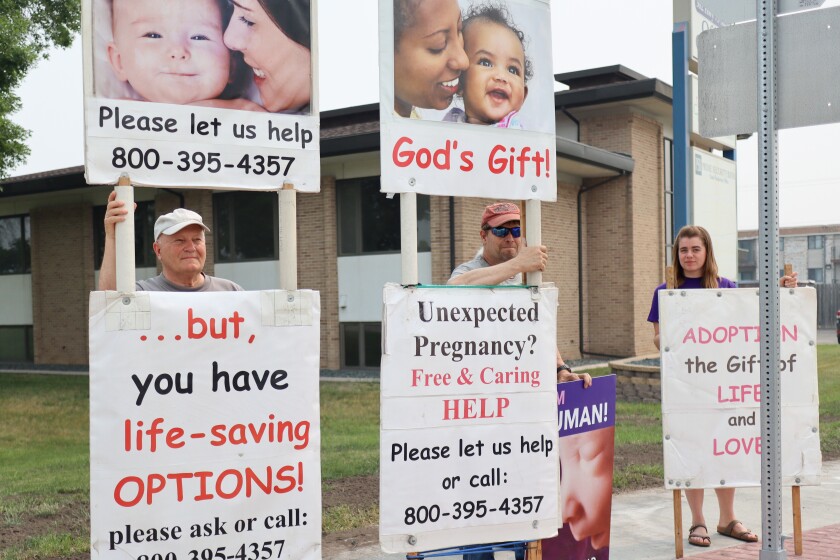
Blaeser said she supports restrictions on abortion medication being mailed without what she referred to as “proper medical oversight.”
“Abortionists are playing fast and loose with the health of women when it comes to chemical abortions. Those are very powerful and dangerous drugs, and they’re being mailed out to women with absolutely no protections for their health,” Blaeser said.
Grants to family planning clinics
Kromenaker called attention to when Trump blocked Title X funding during his first term from being allocated to health care organizations that provide or refer patients for abortions. This was undone during Biden’s administration, but it is something Kromenaker strongly opposes if Trump decides to revisit funding for clinics.
“A lot of clinics that are community-based, who receive that Title X funding, are going to feel like their hands are tied and that they can’t give their patients all of their true options,” Kromenaker said.
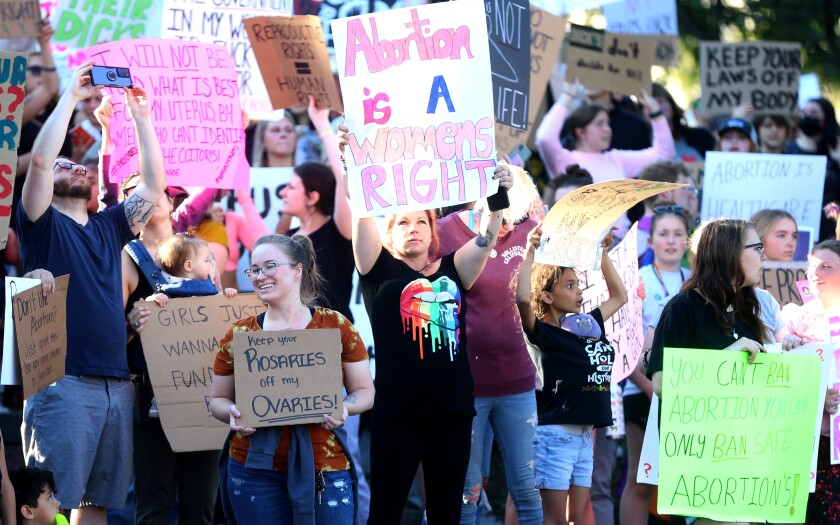
A 2022 report from the Minnesota Department of Health stated any public coverage for abortion care in Minnesota is provided by Minnesota’s general fund. The report said federal funds only apply to abortions in cases of rape, incest or when a pregnancy poses a life-threatening risk to the woman due to a medical condition.
But Blaeser said she sees a disparity between how different women’s clinics are funded in Minnesota.
“Pregnancy resource centers that actually offer full choices to women and encourage them to consider the resources available to them if they should choose to carry their pregnancy to term, those organizations deserve equal funding,” she said. “The abortion advocacy organizations like Planned Parenthood … receive a tremendous amount of government funding that is not equalized across all choices for women.”
ADVERTISEMENT
Collett said she interprets this use of federal funding to be illegal.
“I support the president-elect rescinding the current executive orders and agency actions that violate federal statutes,” she said, pointing to the use of Title X federal family planning funds to require states to facilitate abortion counseling as a means of family planning.
Kromenaker said that regardless of Minnesota’s current laws or its informal status as a “safe haven” state, her guard is still up as Trump’s second term nears.
“I don’t think anybody should assume anything is safe at this point; I think that’s naive and not reality,” she said.












